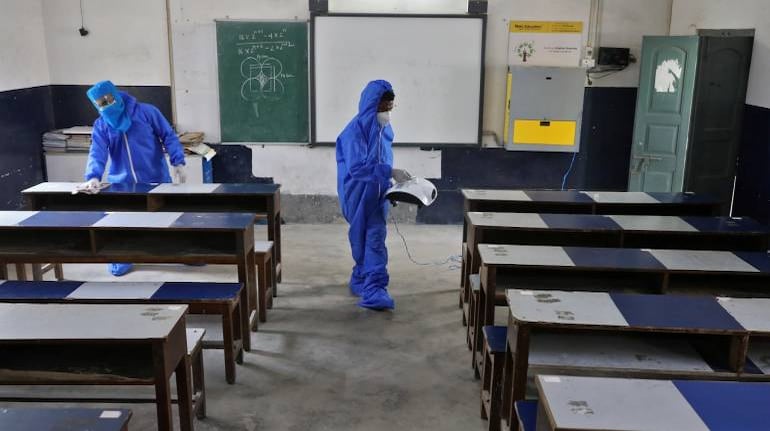



COVID-19 has shown to the world how volatile and vulnerable it is to catastrophes. The factors that contributed to this exponential rise in COVID-19 numbers in India were the absence of a reliable diagnosis system, an inadequate number of frontline health workers, lack of infrastructure in hospitals for containment of patients, a lackadaisical attitude by many towards adhering to lockdown guidelines, among others.
As the infection has most of its symptoms similar to a common cold, a cough or fever was overlooked, and the time taken by tests such as the RAT and the RT-PCR to deliver results made it important to have a single definitive diagnostic test for identification of COVID-19.
The aim of all health organisations worldwide is not just to treat the infection but eradicate it, and the only way being the development and administration of an effective vaccine. So, while the world is gearing up to combat the third wave of this pandemic, various organisations are invested in manufacturing a vaccine against this virus. Some are close to being administered. With the advent of vaccine development technologies such as an attenuated live virus, whole inactivated virus, protein subunit, recombinant, peptides, R/NR vector, and nucleic acid types, a concentrated effort is being put in by different countries.
Studies show that advancing from Phase I to Phase II of vaccine development is up to 63% and from Phase II to Phase III is only about 31%. While only 10% of the vaccines hit the market. Different types of vaccines are also warranted because one will not work for a global population. At present, there are over 300 vaccine candidates from around the world and just above 30 of these are undergoing clinical trials, with the most promising ones being SPUTNIK-V, AstraZeneca, Pfizer, or BionTech and Moderna.
As the world moves closer to achieving a safe vaccine, India’s quest for locally produced COVID-19 vaccine has gotten longer as the drug regulator has put on hold emergency use of Bharat Biotech’s anti-COVID-19 vaccine.
Apart from this, the following are the five challenges India will be facing in vaccine distribution and administration: One, immunising its incrementally large population with varying demographics and geographical spread (a large part being in rural and remote areas); Two, financial implications of a nationwide immunisation programme (if it is outsourced); Three, limited R&D, infrastructure, and funds to develop an indigenous vaccine making India dependent on other nations for a vaccine and its long-term viability; Four, protecting its frontline healthcare workers from exposure as a mass immunisation programme starts, and; Five, sharply targeting the most vulnerable sections of the society (elderly, infants, and co-morbid cases).
Logistically, vaccine delivery to remote places can be undertaken with existing infrastructure such as lyophilized transportation mechanism, polio vaccine transport mechanism, and other supply chain mechanisms. To accentuate its public health safety measures, the government also plans to start production of close to a billion auto-disabled syringes to prevent reuse and re-infection.
Vaccine-tracking and monitoring of storage conditions followed by precise delivery to the target population is a concern. Hence, the government announced that indigenously-developed EVIN technology would be used for tracking vaccine stocks and temperature conditions in storage facilities. Another challenge is the disposal of huge amounts of biomedical waste generated when a mass immunisation programme of this scale is undertaken.
The decision to differentiate is complex and glaring in three footings – (i) between elderly and co-morbid cases, (ii) frontline workers, public and private sector employees (iii) and whether all states to be included at once, or states with the worst case load be accorded priority.
Medically, before a vaccine is declared fit for administration, it undergoes five stages of scrutiny ranging from the pre-clinical evaluation to Phase III of final testing. The silver lining in this is the experience of Indian authorities when it comes to making the vaccine and administering large scale immunisation programmes. India houses 60 percent of the world's vaccines and is home to the largest vaccine manufacturer in the world – the Serum Institute of India. It runs various immunization programs, from the hugely successful OPV program to the Indra Dhanush scheme focused on immunizing infants.
To conclude, certain questions need to be accorded top priority while planning the way in the Indian COVID-19 immunisation programme, which must be accentuated with novel steps and innovations at the grass-root level catering to all. While India boasts extensive experience in mass immunisation and R&D paired with the indigenisation of products, it is a challenge at large when it comes to achieving the aim.
Discover the latest Business News, Sensex, and Nifty updates. Obtain Personal Finance insights, tax queries, and expert opinions on Moneycontrol or download the Moneycontrol App to stay updated!
Find the best of Al News in one place, specially curated for you every weekend.
Stay on top of the latest tech trends and biggest startup news.